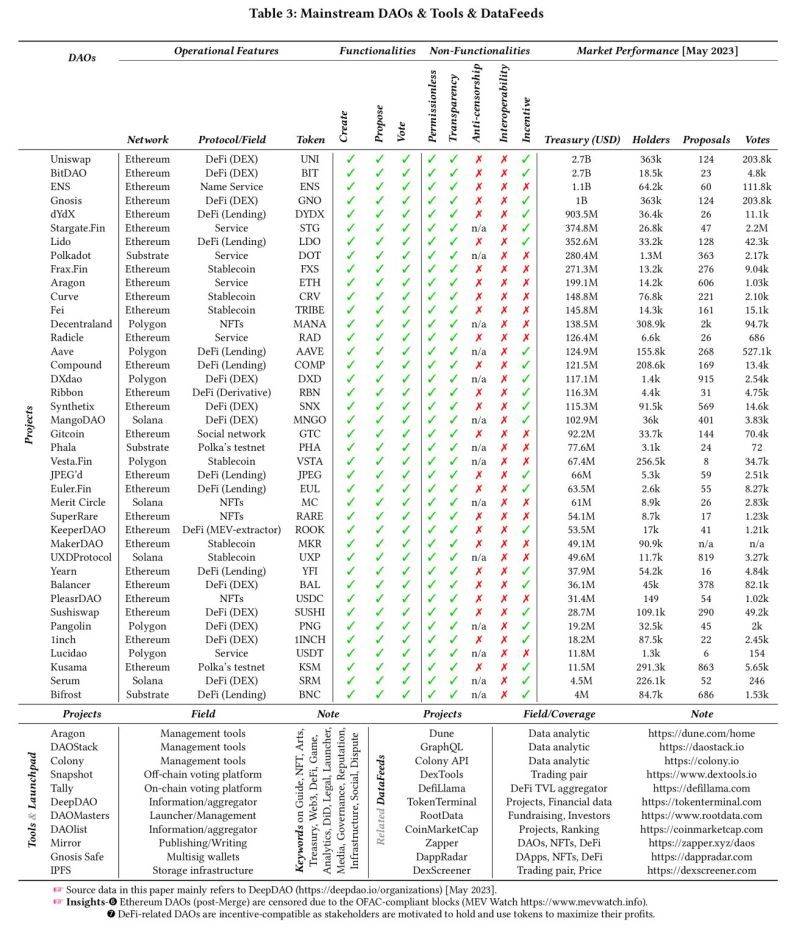The commitment to decentralized governance is enormous, but the obstacles are equally significant.
Author: arndxt
Translation: DeepTechFlow
More than 581 DAO projects, analyzing 16,246 proposals, spanning 5 years.
This paper on DAO covers all projects using the DAO/governance platform called Snapshot, covering over 95% of the actual existing DAO projects (over 11,000 spaces).
In this DAO dilemma, I have identified 4 key points.
Centralization Paradox
The data depicts an impressive growth trend - 581 DAOs, over 16,000 proposals, over 5 years. The distribution of members follows the Pareto principle.
A few members hold the majority of power.
I wonder: are we simply reshaping traditional power structures on the blockchain? The Gini coefficient of token distribution within DAOs will be an important indicator.
Technical Time Bomb
The lack of IPFS upgrades concerns me. This is a typical technical burden that could lead to collapse as DAOs expand. We are talking about potential data loss, soaring storage costs, and reduced efficiency.
Here's a thought experiment: what happens when crucial proposal data becomes inaccessible due to outdated IPFS links? The consequences could be severe.
Tug of War between Democracy and Efficiency
Research shows diverse voting scenarios - from budget decisions to recruitment. This is democracy in action. However, I see two major warning signs:
a) Voter apathy: low turnout for many decisions.
b) Token-based voting: a few large holders can manipulate the entire ecosystem.
This creates a governance paradox. On one hand, we have the vision of decentralized decision-making. On the other hand, we face the harsh reality of centralization and community alienation.
Token Dilemma
This is where things get really interesting. Most DAOs use self-issued tokens, rather than mainstream digital currencies like USDT or ETH. This raises profound questions about incentive structures and long-term viability.
Are we witnessing the birth of a powerful governance system, or just a complex token manipulation scheme? My inner pessimist tends towards the latter, but I am also willing to be challenged.
The Way Forward
Despite these challenges, I remain cautiously optimistic about DAOs.
I believe the following steps need to be taken:
Implement quadratic voting or other mechanisms to balance power.
Prioritize upgrades to technical infrastructure, especially in data storage.
Develop more effective incentives to promote sustained participation in governance.
Encourage the use of more stable value tokens for governance.
This study reinforces my belief that DAOs are at a critical moment. The commitment to decentralized governance is enormous, but the obstacles are equally significant.
What are your thoughts?
Are DAOs the future of organizations, or are we witnessing a great experiment destined to replicate the system it seeks to replace?

免责声明:本文章仅代表作者个人观点,不代表本平台的立场和观点。本文章仅供信息分享,不构成对任何人的任何投资建议。用户与作者之间的任何争议,与本平台无关。如网页中刊载的文章或图片涉及侵权,请提供相关的权利证明和身份证明发送邮件到support@aicoin.com,本平台相关工作人员将会进行核查。




